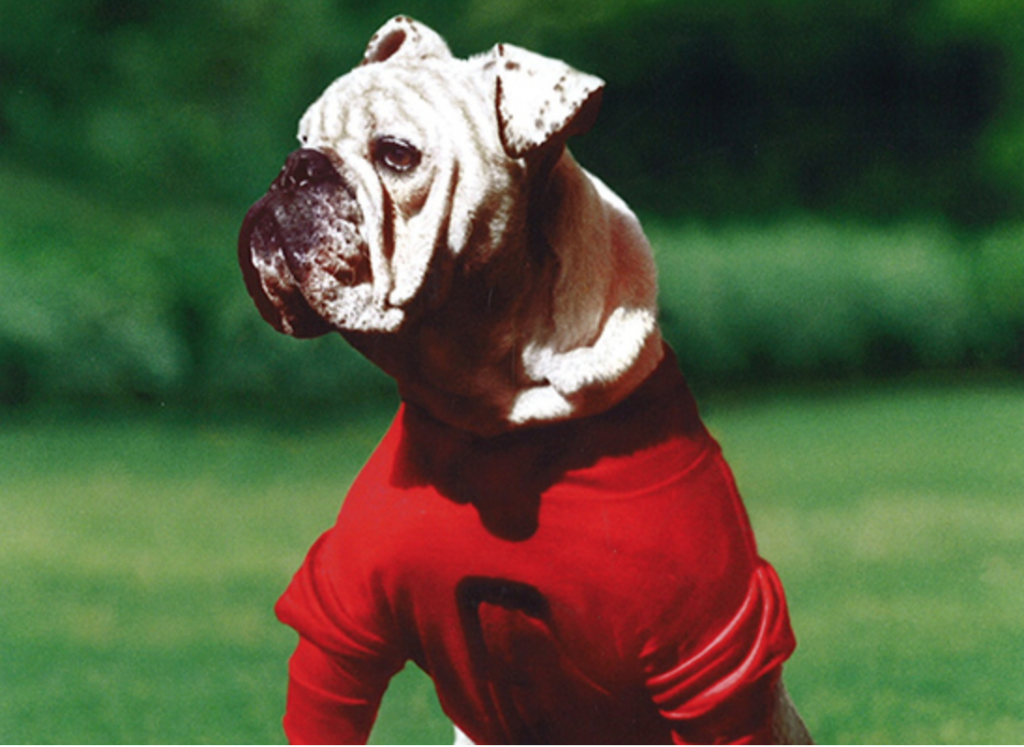A Dearth of College Football Getting You Down?
In these unprecedented times, an unprecedented number of college football games will not be played. In another unprecedented decision, the University of Georgia recently announced that their beloved mascot- Uga the Bulldog – will not be making on-field appearances this season due to Covid safety restrictions… thereby further reducing the number of viewable games that I have any interest in watching.
If you’re like me, all of this unprecedented-ness in the world of sports has opened up unprecedented hours of free time in your nights and weekends this fall. These hours will inevitably be filled somehow. Watching football games featuring teams you don\’t actually care about? Binging yet another series on your favorite streaming platform? Diving down a rabbit hole of cat videos?
OR
Combining the best of both worlds – spending that time growing your data-driven skill sets while simultaneously having fun!
This issue of the Dataspace newsletter is all focused on:
Data Driven Recreation: Fun in the time of Corona
- Coding is a sport, right??
If competition is what helps you get motivated to level up your skills, check out any one of these numerous challenges that will let you go head to head (keystroke to keystroke?) with other aspiring coding masters.
Maybe some suggestions for recreational activities that don’t involve staring at your computer?? Get ready for:
- Nostalgic, old-timey fun:
Remember books? Like podcasts, only the words are printed out on paper?? Sometimes there is nothing like escaping into the pages of a book for learning, entertainment, and some peace and quiet.
While certainly not all inclusive, a couple of recommended titles are listed below, as well as a link to a curated collection of some good book choices on the subject of AI/ML. These suggestions vary in content – from the instructional, to discussions on the ethics of AI in society, to fiction reflecting our imaginings of the future of technology.
Ready Player One
The Hundred Page Machine Learning Book
Speech and Language Processing (link to e-book)
An AI Reading List - Healthy fun?
While the word \”healthy\” doesn’t always have the connotation of “fun”, those who love data may find enjoyment and health intertwined in the use of biometric data to develop their own fitness/nutrition programs. There are not only a variety of apps available to help collect and analyze biometric/activity/nutritional data, there are also a variety of ways that you can leverage this information to optimize your health and fitness efforts. It\’s exciting how the applications of analytics can help you get motivated to get moving, keep moving, and meet your health goals. - The new sportsball!
The elite sport of coding, combined with… an actual ball! Or perhaps more accurately, a robo-ball. The Sphero BOLT – a programmable robot ball equipped with a multitude of sensors – offers the opportunity to complete a variety of games and coding challenges with your kids, or to just tinker on your own!
I hope these suggestions inspire you to get your body, and your brain, up and recreating!
Ben’s Take
WHO WOULD HAVE WON THIS YEAR’S COLLEGE FOOTBALL CHAMPIONSHIP?
I loved Katie’s newsletter this week but, as a University of Michigan grad, I was appalled that she wrote a whole newsletter around college football and didn’t even mention Michigan football! Especially given the fact that she, like me, is a Michigan grad. Well, The Wall Street Journal did publish an article last week about what it’s like here in Ann Arbor, on Saturdays without football. And I was positive (football positive, not Covid positive) that this was our year for a national championship! So, let’s just all agree that Michigan would have clinched it. Easily.
THE PANDEMIC’S EFFECT ON DATA SCIENCE: On the data science front, I’m working on a blog post detailing the effect of the pandemic on data science. The main thrust is that, at some level, data science takes knowledge gained in the past and applies it to predictions about the future. This approach makes sense when the future looks like the past. But, models can’t be trusted when that assumption no longer holds – do buying patterns, hiring patterns, in fact most business patterns look today like they did last year? My point is that, right now, data science practitioners and the folks who rely on their work must be very, very careful.
QUICK PERSONAL NOTE: I apologize for throwing a personal piece in here but, for those who are interested… Many of you know that my son is a military historian. So, the proud father in me feels compelled to mention that he was interviewed on the NPR radio show, THE WORLD last week about the US’s participation in World War 1. Not only did he sound professional but he also managed to avoid being dragged into political issues. Great job, Jim (er James)!

